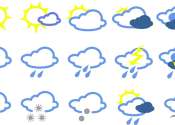New class of Mars quakes reveals daily meteorite strikes
An international team of researchers, co-led by ETH Zurich and Imperial College London, has derived the first estimate of global meteorite impacts on Mars using seismic data. Their findings indicate that between 280 to 360 ...









